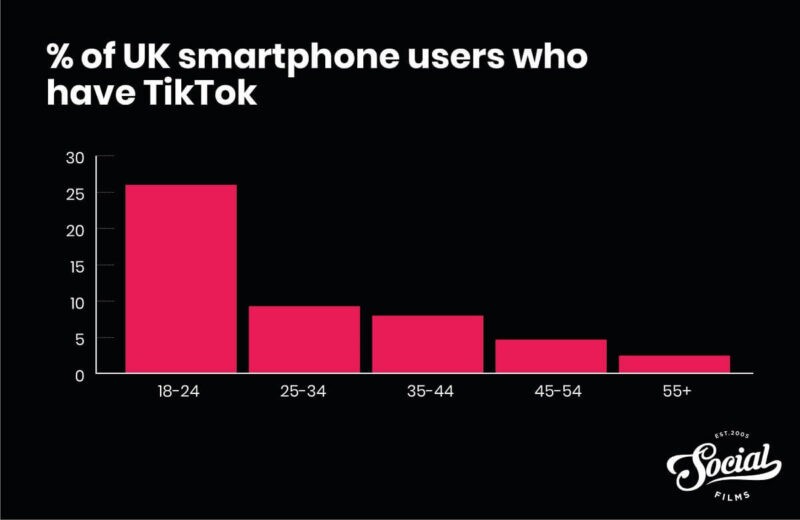SOCIAL MEDIA ADVICE FOR B2B COMPANIES
Social media marketing is pretty vital to every company, but it’s easier for some than it is others. Marketing plans can be particularly tricky to navigate at the best of times, so we’re here with some social media advice for B2B companies from The Source team. We have a wealth of experience in B2B PR support, which includes content marketing, social media and media relations and from that experience, here’s what we recommend.
Top Social Media Advice For B2B Companies
Click on the links below to jump to specific social media advice for B2B companies…
- Find the right social media platforms
- Utilise industry news
- Remember that people like people
- Keep things interesting
- Leverage appropriate hashtags
- Don’t underestimate Facebook groups
Find The Right Social Media Platforms
Not every platform will work for every company, that goes for B2C industries as well as B2B. For example, TikTok marketing is a great opportunity for brands with a visual appeal, such as tourism providers, wedding dress manufacturers and cosmetic companies. Other platforms, such as LinkedIn, work much better for B2B marketing, especially for service products such as CRM software, for example. There’s no one way to decide which social media platform will work best for your B2B company, so the best way to approach is through trial and error. See which types of content get the most engagement, and where. Traditionally, though, we’d match the following top platforms to the following sectors..
- Instagram – mainly B2C, with opportunities for B2B
- Twitter – mainly B2B, with opportunities for B2C
- Facebook – both B2C and B2B
- TikTok – mainly B2C, with opportunities for B2B
- LinkedIn – mainly B2B
- Pinterest – mainly B2C
So, if you’re heading a B2B company and want to give social a go, it’s worth dipping your toe in the water with LinkedIn, Twitter, Facebook and potentially Instagram and TikTok also. We have some more social media advice on what kind of content to focus on below.
Utilise Industry News
You shouldn’t be content curating all of your posts, as most of your audience will be following your accounts because they want to hear from you, however, utilising relevant industry news in posts is a good way of keeping your audience informed of relevant and interesting developments. It keeps you abreast with your sector and positions you as an expert in that field, furthermore, it creates a good mix of content to keep your strategy fresh and current. We’d recommend around an 80:20 ratio of curated to original content, but don’t be afraid to mix this up week on week.
People Like People
As we mentioned above, people like people. Though you’re selling ‘business to business’, there’s still a person behind that brand at either end. A study by Princeton University proposed the stereotype model, which boils down to the fact that people judge others on their warmth and competence. The more ‘friendly’ you appear, the more likely people are to trust you – this applies to your social media followers too. Though it’s important to draw a line and remain professional, it’s also a good idea to be conversational in your content and help build trust in your brand. Harvard psychologist Amy Cuddy says it’s important to demonstrate warmth first and then competence, especially in business settings. A lot of effective social media marketing begins with an understanding of human psychology.
Keep Things Interesting
It’s a common misconception that B2B communications have to be stiff and corporate, try injecting a light tone of voice into your content or experimenting with light-hearted competitions for engagement. With one of our B2B clients Altecnic, they ran a 12 days of Christmas giveaway which included a daily video of their Technical Manager dressed as Santa. You need to remember that your audience is human and keeping things engaging is a sure way of retaining engagement and growing following. If there’s a certain lull, never underestimate the power of a social media giveaway either, no matter your industry.
Leverage The Right Hashtags
Researching into hashtags is never time wasted. You can now use hashtags in your posts across LinkedIn, Instagram, Twitter and more recently, Facebook. One of our B2B clients frequents the ‘#PlumbersHour’ hashtag because this is where their core audience is. Hashtags are often followed by those interested in that kind of content, so if you have a specific audience of your B2B brand, then find out what the kind of conversations that they’re already in, and join in. You can discover hashtags through researching related terms on Instagram and Twitter, and also by looking at what other influential accounts are tapping in to.
Don’t Underestimate Facebook Groups
Finally, our last piece of social media advice for B2B companies is not to underestimate the power of a Facebook group. Similarly, to leveraging hashtags, Facebook groups can be a great way to find your audiences. In 2019, Facebook announced that Facebook says there “are more than 400 million people in groups that they find meaningful”, meaning there’s a huge potential audience if you know where to look. Start by searching keywords on Facebook that are relevant to your brand for example “food manufacturing”, “plumbing” or “health and safety”.
For more advice and support for B2B PR, social media, content marketing and more, please get in touch with our friendly and experienced team through our website. Or, you can keep up to date with what The Source is up to on Facebook, Twitter, LinkedIn and Instagram.





